The art of STORYTELLING for business
Today’s Coffee Chat Friday is with Harriet Patience Davies, master storytelling coach! Lot’s to learn on how to frame your pitch in a story!
Today’s Coffee Chat Friday is with Harriet Patience Davies, master storytelling coach! Lot’s to learn on how to frame your pitch in a story!
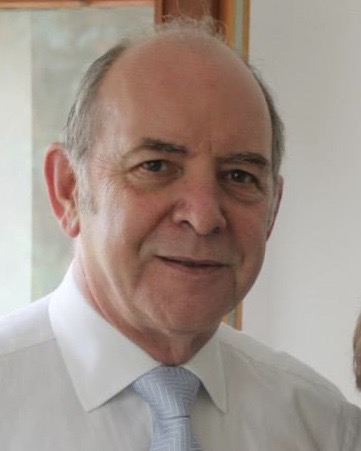
Chris has been designing and orchestrating the delivery of transformational change for over 35 years. Over the past 25 years he has lead several assignments across different industries, in the UK, USA and Europe. Frustrated by large consultancies that continue to adopt an inflexible operational and narrow approach to transformation, he has developed a collaborative, design led approach which includes the structural, operational, human, behavioural and cultural elements of the transformed organisation. This anything but “operational” in approach.
His client sponsors tend to be CxO level.
Q1. Did you always want to become a consultant or did you fall into the role?
I fell into the role of independent consultant really. However, I took an opportunity to join a consultancy early in my career which gave me a set of tools and a grounding in what consultancy means.
Q2. What makes a good consultant?
An open mind, collaborative approach and really listening to your client.
Q3. Do you feel you manage yourself well or is it a case of ‘the cobbler’s shoes’?
I would like to think that I do manage myself well and I am quite disciplined in managing myself
Q4. Are there enough hours in your day?
Usually, yes. But there are always times when the midnight oil must be burnt. This needs to be the exception not the rule though.
Q5. If you could magically stop your clients from making one mistake – what would that be?
Rushing to execution. Creating portfolios of programmes and projects, getting the individual business cases approved, all without out an overall transformation design is a recipe for disaster.
Q6. What do you find is the best way to market yourself?
Though my network and publishing articles and appearing on podcasts
Q7. What do you do to unwind?
Family time, watching rugby.
Q8. What advice would you give a starting consultant?
Be clear what your proposition is and how to articulate it.
Q9. What’s your guilty pleasure?
Red wine
Q10. What’s your goal for next year?
To be healthy.
Today’s ‘Coffee Chat’ is about ‘Getting your Linkedin content RIGHT!’. It’s part three of our three-part chat with Ciara (resident Linkedin smartypants). Hope you enjoy it (over coffee, or another beverage of your choice! And you want want more info on Linkedin, click HERE for your free guide.
What does he do?
JB is the Founder and CEO of Kryotech Ltd – a cybersecurity specialist and app developer. They are involved in several high-profile projects, including XPRIZE. He is the creator of Vox Messenger, the new competitor to WhatsApp and Signal and is focussed on changing the Old-World paradigms and helping humanity achieve a Star Trek future. They serve enterprise, military and consumer.
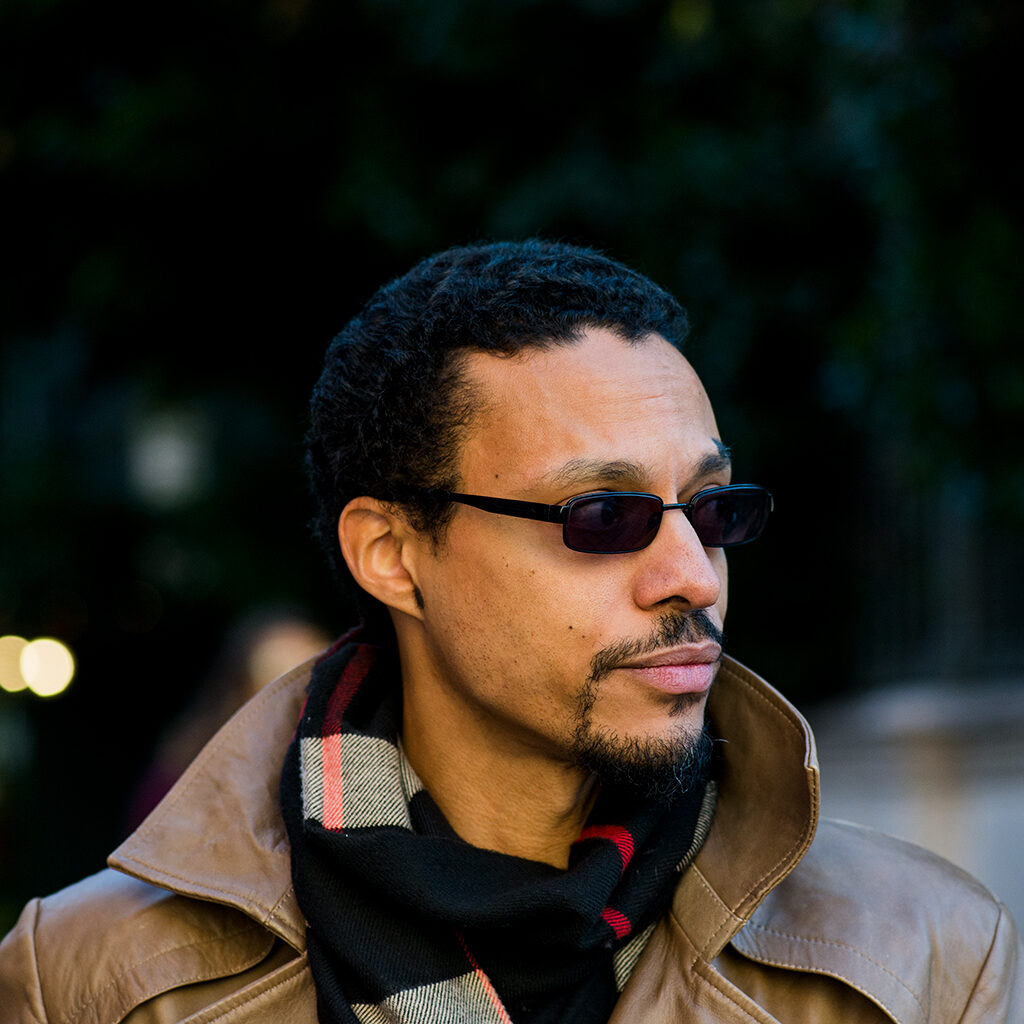
Q1. Did you always want to become a consultant, or did you fall into the role?
I didn’t always want to become a consultant. I ended up being driven towards it because I’ve always been someone proactive. This led to my managers in most of my jobs pushing me towards more consultant style positions.
Q2. What makes a good consultant?
I wouldn’t say there’s one single thing that makes a good consultant. You need a few different talents, like the ability to active listen and comprehend what your client wants. I would say an understanding of behavioural psychology will become invaluable as will an understanding of different cultures. Different cultures can require a different approach.
Q3. Do you feel you manage yourself well or is it a case of ‘the cobbler’s shoes’?
I’m good at self-management and I have a lot of drive. I visualise my objectives, including what I want to feel at that point of achievement. And I focus single-mindedly on the attainment of those goals.
Q4. Are there enough hours in your day?
Of course. I don’t support or believe in 996 cultures whatsoever and won’t permit it in my company. If you manage well, you don’t need overtime, or crunch, except at the most unusual of circumstances. It should never be the norm.
Q5. If you could magically stop your clients from making one mistake – what would that be?
If I could magically stop my clients from making one mistake – it would be stop believing that you know more than the subject matter expert you’ve hired to get the job done. The second-guessing wastes money and time.
Q6. What do you find is the best way to market yourself?
For me, I find being my realest self is the best way to market myself. When I used to try to stick to certain stereotypes in business, like being self-effacing when people are being unprofessional or deliberately obstructive, I noticed that the effects of an ostensibly institutionally racist system would hold me back, while permitting progress for others. I noticed that as soon as I became uncompromising in my stance and approach and showed people the real, crazy, occasional-f-bomb dropping mofo that I am, nothing held me back, including the systems around me.
Q7. What do you do to unwind?
I play a lot of Battlefield and Kerbal Space Program. I find it cathartic, and I’m obsessed with space and rocket science on a personal level. Battlefield I find is great for blowing off steam too.
Q8. What advice would you give a starting consultant?
The best advice I can give is be yourself. Develop your personality, as it’s your personality combined with your skillsets that will get you work and kudos. Don’t ever take anything personally, even if it is. Life is too short to take anything personally.
Q9. What’s your guilty pleasure?
I’m obsessed with Batman and Zack Snyder’s Justice League.
Q10. What’s your goal for next year?
My goal next year is to have made our first £1m in profit. And maybe take a short weekend break.
Scott is a business owner who ‘helps other business owners make profits and create more time to live there lives’. He believes a lot of business owners have not been ‘taught how to run a business’, rather they have gone from being a technician to being a business owner and being a business owner is very different to being a technician. Scott and his team help by putting in place good financials, systems, and people so the owners can get the most out of his business.
Today, we put Scott to the 10 question test!
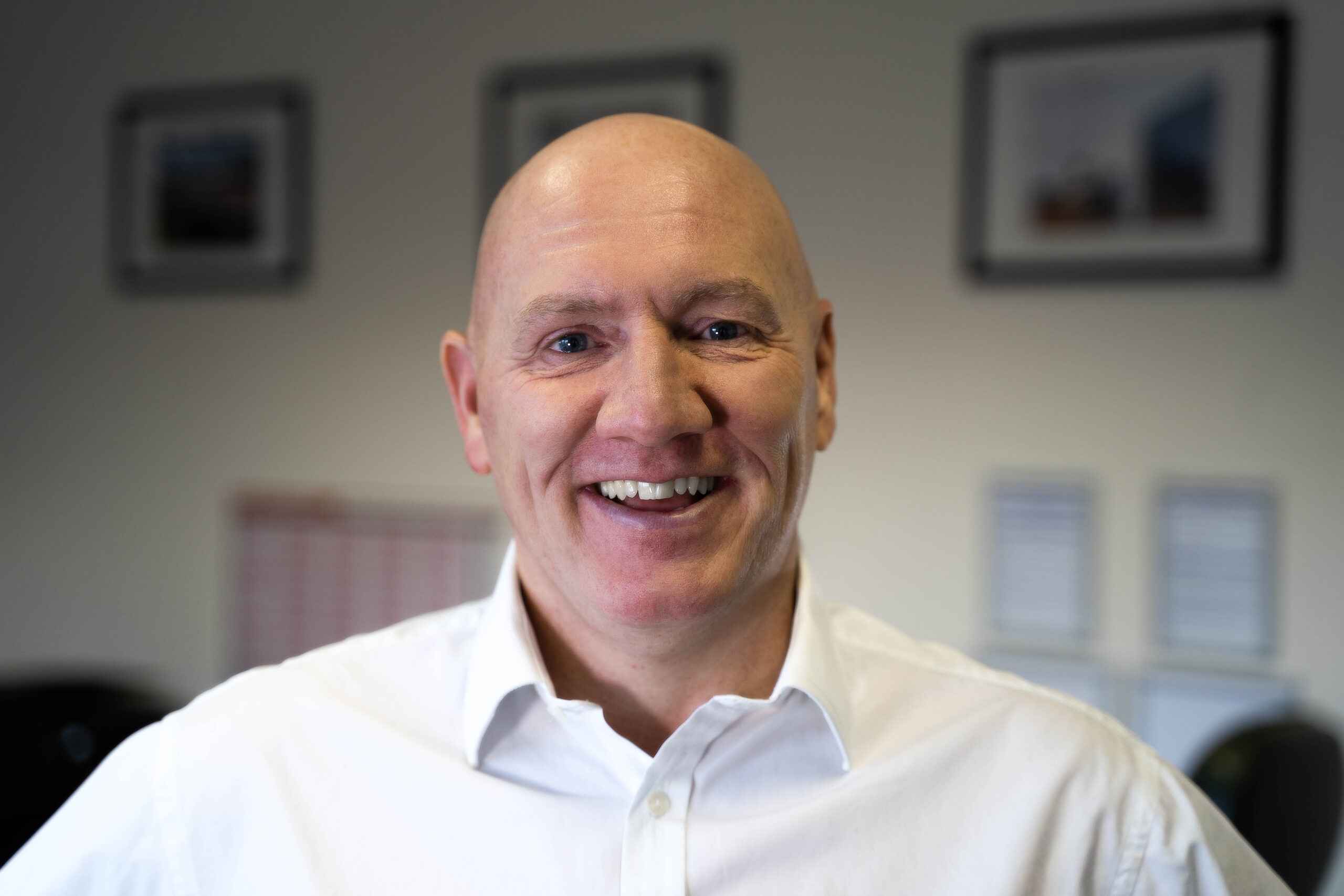
Q1. Did you always want to become a consultant or did you fall into the role?
I fell into to the role after running my own business and finding out there is not much help or support for business owners.
Q2. What makes a good consultant?
You must have experience in what you are consulting on and you need to care about what you are doing
Q3. Do you feel you manage yourself well or is it a case of ‘the cobbler’s shoes’?
Yes I manage myself very well and practice what we preach daily in the businesses we own and operate.
Q4. Are there enough hours in your day?
Yes, we all have 24 hours in a day its how you use these hours that makes the difference our Fairbros 4 system helps create that right work / life balance.
Q5. If you could magically stop your clients from making one mistake – what would that be?
Not paying attention to their numbers.
Q6. What do you find is the best way to market yourself?
Actions people see what we do and how we do it and actions speak louder than words every time.
Q7. What do you do to unwind?
I love to BMX.
Q8. What advice would you give a starting consultant?
Make sure you truly know what you are consulting on and have the experience to advise correctly.
Q9. What’s your guilty pleasure?
Sitting in the Hot Tub with music playing, the sun on my face and day dreaming.
Q10. What’s your goal for next year?
To grow Fairbros Ltd to be the best family run business on the planet.
www.fairbros.co.uk
She’s been Managing Director of Red Loom since 2018 and offers her expertise based on 25 years of senior leadership experience in B2B Marketing. Her main responsibilities revolve around helping her clients with their corporate and marketing strategy, focusing on customer centricity as the primary driver for sustainable growth.
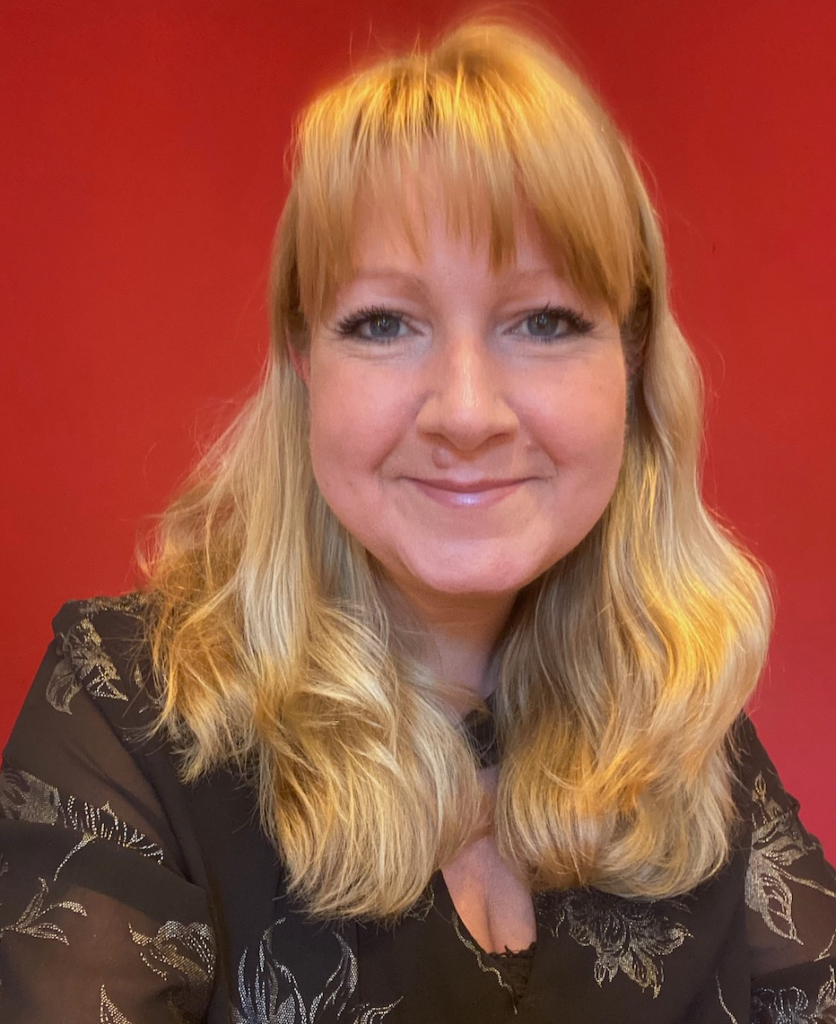
Q1. Did you always want to become a consultant or did you fall into the role?
Neither I guess… I thoroughly enjoyed leading marketing departments in the UK and globally for over 2 decades. I had a successful but brief consultancy business in 2011, as I got hired by a client of mine. After having my son in 2015, I needed to find a better work/life balance, and was also craving more variety in my day-to-day activities. So I decided to give consultancy another go, and I haven’t looked back since.
Q2. What makes a good consultant?
My 24-year experience across the marketing mix means I can quickly adjust to any project my clients require, whether strategic or operational, short or long term. I’m also dedicated to delivering value at every step, in order to create productive partnerships with my clients.
Q3. Do you feel you manage yourself well or is it a case of ‘the cobbler’s shoes’?
Great question! It can be incredibly difficult to take the time to focus on your own brand when you’re busy delivering projects for your clients. But this represents a vital part of any business, so I strive for balance between project delivery, business management (e.g. finances, operations), and marketing. Of course I need to prioritise my time so some tasks get delayed. As long as my clients are happy, the finances are in order, and I’m part of the conversation, then I can sleep easy.
Q4. Are there enough hours in your day?
This is something I learned throughout my career – there has to be! This means sticking to a schedule, not accepting more work than I can manage, delegating relentlessly, especially those tasks where I add less value. I certainly feel I have more control over my time than when I was in full-time employment, and an undeniably better work/life balance.
Q5. If you could magically stop your clients from making one mistake – what would that be?
Most organisations try to maximise their in-house resources and avoid working with consultants. I’d urge them to think of the times where time and/or skills are an issue with these resources. This happens occasionally and instead of overwhelming their teams with work they can’t handle well, resulting in undue stress, burnout and often unsatisfactory work, leaders shouldn’t hesitate to outsource to consultants. It sounds like a self-serving statement, but it really does make sense when it comes to achieving goals in a timely manner, and often leads to upskilling the team for next time!
Q6. What do you find is the best way to market yourself?
As a marketing consultant, I would obviously advocate for the full marketing mix (in the right proportions), but time and budget tend to be especially limited for consultants. The first step is to make sure you inform your close network – professionals who already know and trust you – about the services you offer. Defining a key customer persona is also useful to make sure you target your outreach accurately and don’t waste any effort. But really the exact marketing mix depends on your business, your clients, the industries you specialise in… I would urge you to back up your efforts with a solid content strategy and thought leadership to build your brand.
Q7. What do you do to unwind?
Now this relates to the “number of hours in the day” question! I do try and take the time to go for walks most days (albeit not in any weather), play with my son, read fiction. I’d like to go back to doing yoga and meeting up with friends… Very soon!
Q8. What advice would you give a starting consultant?
Take the time to set yourself up properly (and give yourself deadlines). It’s so hard to do this later when you’re juggling client work. Create a simple website, set up your company (or sole trader status), sort out your accounting and your processes. Just get the basics in order early and you won’t waste time later.
Also ensure you deliver exceptional services, every time. Client retention will always be more effective than acquisition, and you can’t underestimate the power of word-of-mouth in the consultancy world.
Q9. What’s your guilty pleasure?
I’ve got plenty of them… But I try to indulge in moderation. Whether that’s chocolate or wine, and even watching episodes of Life in the Sun while I do my accounts!
Q10. What’s your goal for next year?
I’m passionate about sustainability and I’ve just started a new company that aims to deliver convenient food while caring for animal welfare and the environment. I’m at the beginning of the journey though and I’m still dedicated to my consultancy business and the clients I serve.
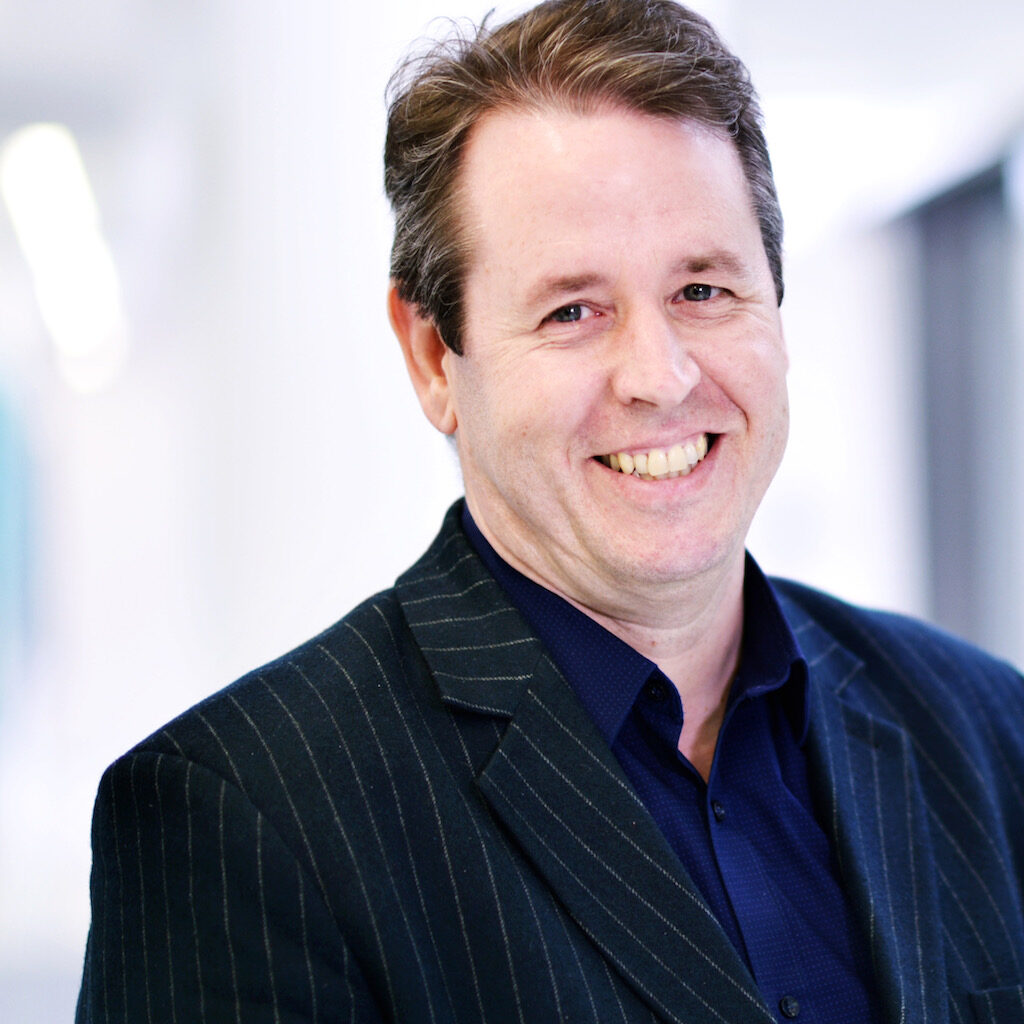
Paul is the Founder and Managing Partner of his own leadership development
consultancy, The Elevate Partnership. He specialises in helping leaders to expand their inner character and capacity to enable them through key transitions in work and life to take the road next travelled.
We put Paul to our ’10 question test’… His answers are both entertaining and enlightening!
Q1. Did you always want to become a consultant or did you fall into the role?
From about 20 years old I always wanted to be a management consultant. 14 years ago, I knew I wanted to add coaching to that skillset and, after a 20 year career, now I combine the two.
Q2. What makes a good consultant?
Three things: (1) be a good listener, (2) be a good listener and (3) deliver results
Q3. Do you feel you manage yourself well or is it a case of ‘the cobbler’s shoes’?
I like to think I manage myself pretty well most of the time. What gets in the diary gets done.
Q4. Are there enough hours in your day?
Yes, I set myself up to win each day. Some days are longer than others but I always allow time to replenish. Overstretching doesn’t work over the long term and it’s where burnout comes from.
Q5. If you could magically stop your clients from making one mistake – what would that be?
Talking from a place of fear and scarcity, it blocks building great relationships. Great clients get the greatest service. That’s why we choose who we work with carefully. If it’s not a two-way ‘heck yes’ then we pass and refer on. It saves acrimony down the line.
Q6. What do you find is the best way to market yourself?
Conversations that connect. Connecting first and getting to know my clients is always the best way to build trust and great working relationships. Good business almost always flows from this.
Q7. What do you do to unwind?
I train in Aikido four nights a week and that really helps me get out of my head. Quality time with my wife is the best way to unwind for me. She is so smart and intelligent I love our conversations.
Q8. What advice would you give a starting consultant?
Get known for one thing you do really, really well. Be the ‘go to’ person for that thing and make sure it’s something you love
Q9. What’s your guilty pleasure?
Two guilty pleasures come to mind. The first is ABBA music. ABBA Arrival was the first record I bought and it’s a pop masterpiece IMHO. The second is watching Cobra Kai – the sequel to the Karate Kid movies – on Netflix. Season 4 has been announced and is in production.
Q10. What’s your goal for next year?
To continue to find great clients to work with and do great work together. Through COVID I’ve changed from ‘chasing achievement’ to ‘allowing achievement’. The energy is different and it’s my preferred way of being.
More information about Paul…
He also serves on the board of the European Mentoring and Coaching Council,
UK as their Professional Development Director and is Chair of the Board of
Trustees for The Adagio College of Performing Arts.
A connector of dots, Paul brings a new perspective to the leadership conversation through his study of neuroscience and Aikido. He has a gift for deep listening and upbeat facilitation, and has an ability to draw out the things that need to
be said. Clients feel reassured in his presence and safe in speaking their truth.
Paul has been a management consultant, coach, educator, facilitator and trainer
for over 20 years working around the world with Fortune 500 and Times 250
corporations, public sector institutions and voluntary organisations for PriceWaterhouseCoopers, CapGemini and IBM.
Paul previously co-led IBM’s Global Coaching Community of Practice and helped
grow this to 4,000 coaches across 80 countries. In addition he served as an Executive Coach in IBM’s Professional Coaching Service. He has taught and
coached leaders individually and in groups, across 22 countries up to and including C-Level Executives.
Paul holds an MBA from Henley Business School, a BSc in Management Sciences
from University of Manchester and is a seasoned, accredited coach with certifications spanning leadership development, psychology and psychotherapy.
Paul lives happily in the middle of nowhere in the UK nestled in nature with his
wife, Tina, indulging his passion for Aikido and writing music.
CONTACT DETAILS
T: +44 (0)7584 947879
E: info@theelevatepartnership.com
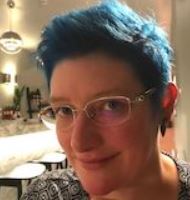
Harriet Patience-Davies helps businesses to create ‘compelling stories’. Today we put her through our Q&A… read on for some interesting insights!
Q1. Did you always want to become a consultant or did you fall into the role?
Fell into it! In truth I didn’t really know what a consultancy did that was any different to an agency when I applied to work at Accenture in 2015. By then I’d spend a decade moving between client and agency-side digital roles and I wanted to be at the cutting edge. Everyone in 2015 said that was Accenture Digital so I joined up. I had a great 5 years there, but it was when I took on a role as Accenture’s UK Storytelling Coach I found my true passion.
I left Accenture in September 2020 and launched my storytelling consultancy business on October 1st. This time I definitely know what a consultant does! We choose to call our business a consultancy because we offer a wide range of services – training courses and webinars, but also individual and team coaching, both on a short term and long term basis – whatever our clients need to become better communicators and speakers.
Q2. What makes a good consultant?
Curiosity – you need to be genuinely interested in how both people and systems work. You can’t offer the advice that makes big picture changes without detailed insights of how it all fits together.
Q3. Do you feel you manage yourself well or is it a case of ‘the cobbler’s shoes’?
I do, but I’m a big fan of to do lists and collaboration tools – we currently use Asana at PDC to manage both the day to day work and to track out new business prospects. I have been known not to always practice what I preach – which I why I recently spent an afternoon reorganising the study to make sure I have the best Zoom background possible – https://patiencedavies.com/2021/04/21/how-i-set-up-my-new-background-for-virtual-meetings/
Q4. Are there enough hours in your day?
No, but that’s mostly about the fact I have two children (3 years and 6 months old) and juggling a baby with a new business is the definition of time consuming! Luckily my husband is a true partner both at home and in the business and between the two of us we make it work.
Q5. If you could magically stop your clients from making one mistake – what would that be?
I would love people to stop reading their PowerPoint slides when they are presenting. I cannot tell you how many interesting and engaging presentations have been ruined by the speaker just reading the slides out – what’s the point? You are boring your audience. If you’re not going to say anything other than what’s written on the slide, then this meeting could definitely have been an email.
Q6. What do you find is the best way to market yourself?
As our business is still relatively new, I’m using my network to make connections and talk to people who I’m recommended to. We also run a free weekly newsletter filled with useful content that will attract people to our courses.
Q7. What do you do to unwind?
I only get about an hour a day to not work or be actively parenting and by the time that hour comes around I can’t do much more than relax on the sofa in front of Netflix or Disney+. In the past (and hopefully again in the future when my kids are a little older) I used to write short fiction and do pencil sketches. I was given a voucher to do an oil painting class for my birthday back in March 2020, but with the pandemic and parenting haven’t had the opportunity to use it yet. I can’t wait to take up that course and try out oil paints.
Q8. What advice would you give a starting consultant?
Don’t stop learning – you can never know enough. Keep up to date with business and technology trends and identify what your strengths and weaknesses are, so you know what to work on. There’s no shame in taking courses or classes to improve your professional skills.
Q9. What’s your guilty pleasure?
Tony’s chocolonely sea salt milk chocolate. It’s insanely good.
Q10. What’s your goal for next year?
We want to build our client list, introduce more people to value of storytelling for business via our great online courses, and get our newsletter mailing list over 1000.
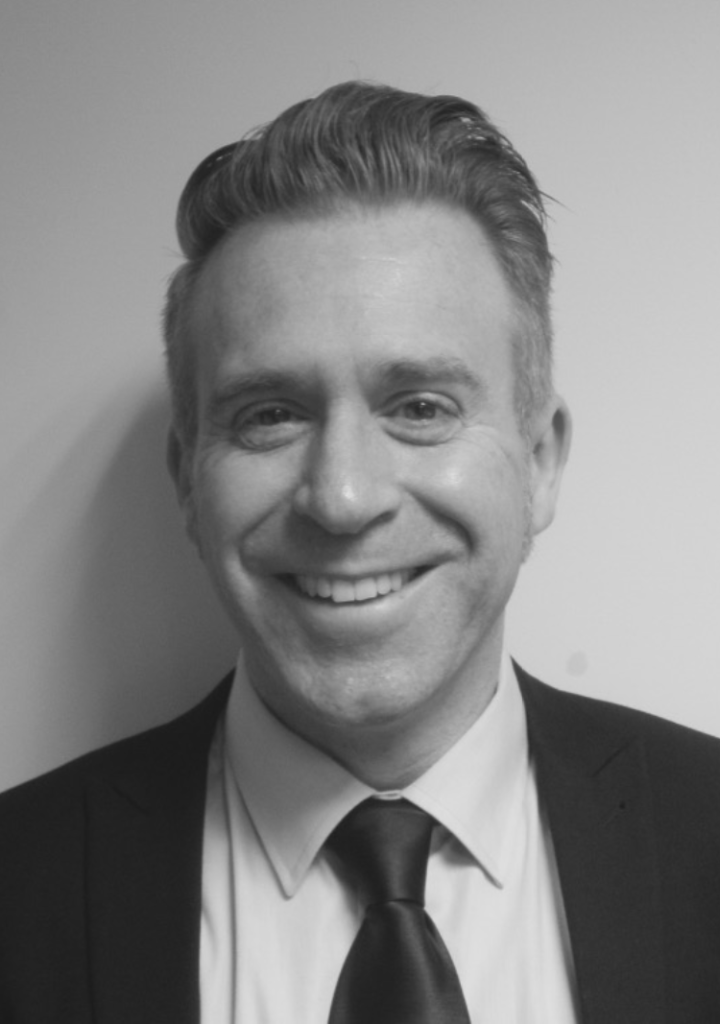
CarbonHappy provide professional advisory services and consultations centred around financial savings through carbon/energy savings, productivity/manufacturing improvements and procurement/purchasing cost reductions. We also advise on sustainability/environmental/recycling topics. They serve most markets, from the health service through to manufacturing and all in between!! Their services are able to critique most business types and provide meaningful and sustainable solutions.
Q1. Did you always want to become a consultant or did you fall into the role?
I started out my career working for an R&D consulting business, I started CarbonHappy in 2009 with a view to helping businesses and institutions to reduce their carbon footprints using a 80% “dirty” footprint methodology, much lower in cost and time than full clean footprints but maximising the carbon reduction.
Q2. What makes a good consultant?
A good listener, laterally minded and always looking out for the benefit of the client.Q3. Do you feel you manage yourself well or is it a case of ‘the cobbler’s shoes’?I do manage myself well, I have learn’t through experience that work – life balance is essential to one’s mental well being!
Q4. Are there enough hours in your day?
Yes
Q5. If you could magically stop your clients from making one mistake – what would that be?
Rushing into potential solutions without understanding the full picture
Q6. What do you find is the best way to market yourself?
Using a variety of tools – social media, direct marketing, networking, client recommendations
Q7. What do you do to unwind?
As many adventures as possible with the family, visting the beach, surfing.
Q8. What advice would you give a starting consultant?
Don’t underestimate the time needed to build up the business to create a decent income, it takes time to create a working pool of clients.
Q9. What’s your guilty pleasure?
Red wine
Q10. What’s your goal for next year?
To double the size of the business and personally to have adventures that have been put on hold due to Covid!!
How do you know that you’re Lead Generation is NOT WORKING?
The answer is simple – if it’s not fun to do, then it’s not working.
I can hear so many, so called experts, disagreeing already – ‘work is not supposed to be fun all the time… bla, bla bla…’
Listen, I’ve worked with all types of business service companies for many, many, years and I’ve seen the best and worst of lead generation tactics, so trust me when I tell you this – if it’s not fun to do, then it won’t work (longterm).
Firstly, what do I mean by ‘fun’…. Let’s explain that a little by highlighting the three letters F.U.N..
F: this stands for ‘Feels Good’. Does it ‘feel good’ whenever you do your lead generation? Now, don’t cop out here by telling me that you ‘outsource’ your lead generation so you don’t know how it feels! Have you outsourced a company to do cold calling, or cold email/linkedin etc? And before you dismiss these tactics – even cold calling can feel good if it’s done right. If you had to sit down today to begin to do your own lead generation – would it ‘feel good’ to you? Or would it fill you with dread and fear! If it fills you with dread – think how it must feel for the poor target!
U: this stands for ‘Uplifting’. Is your lead generation something that is uplifting to your target market. We uplift our target market when we help them – either to solve a problem, celebrate their success or give them a better vision of their future.
N: this stands for ‘Not about You!’. This is the biggest mistake that people make in lead generation. Lead generation is not about ‘selling’, it’s about connecting – creating a meaningful connection, or an ‘active connection’.
There are so so many ideas that can help you to make your lead generation ‘FUN’. We’ve recently created categories that B2B services (especially consultants, coaches etc) can tap into. Watch out for our next few ‘Ideas’ blogs and we’ll outline those categories…
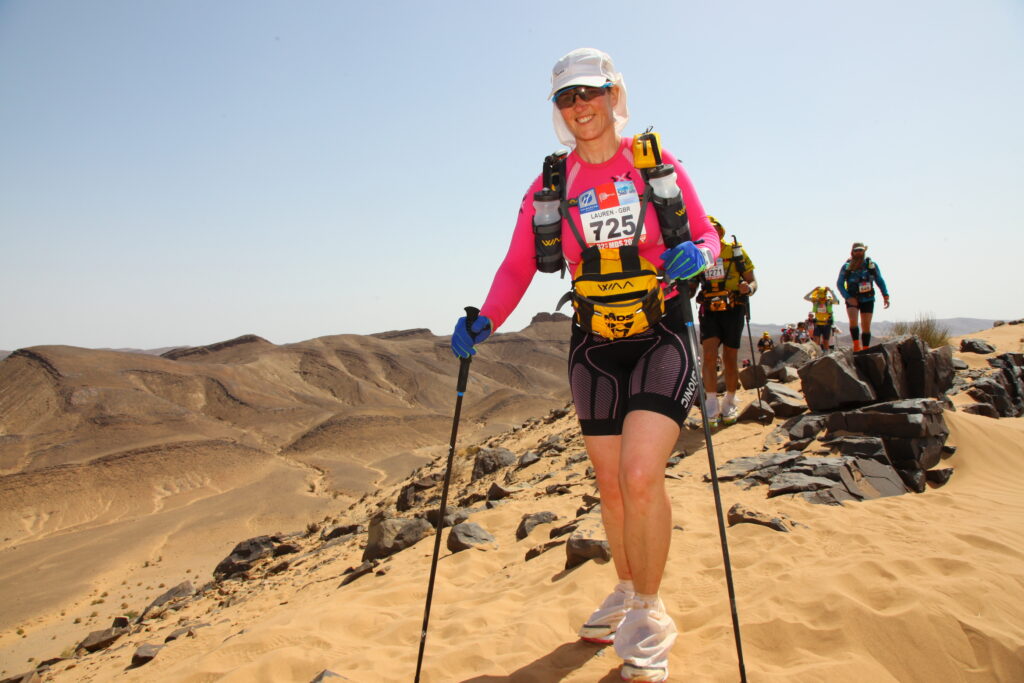
She’s a Strategic Marketing Consultant that leverages market and customer insights to create growth strategies that help organisations achieve commercial goals. Her specialism is market insights and refining the marketing mix (product, price, promotion, place and others). She’s sector agnostic and works with micro to medium orgs (2-800 people) who find themselves in one/some of these scenarios:
a. Suffering from declining sales/market share and need to know how to stop and reverse this.
b. Growing rapidly and needing some help to scale up to match that market demand.
c. Launching a new product/service or entering an international market and need real market data and insights to identify a targeted go to market strategy.
d. Seeking to raise their profile by having a voice in a particular industry/subject and needing thought leadership content/market data to address this
We put Lauren through our 10 question test!
Q1. Did you always want to become a consultant, or did you fall into the role?
I always wanted to be either a DJ or a Mountaineer but lacked the talent …Consultancy was an organic process as I started contracting and studying which upped my skills and realised that insights and knowledge were valuable to clients.
Q2. What makes a good consultant?
A consultant should be a knowledge engine for business – They leverage their unique knowledge and problem-solving experience to spot hidden opportunities for clients. It’s important to have similar values as your client and a speed date is a good way to see if you there’s a good fit. Last, but not least you need to be a people person and flexible to a client’s timelines.
Q3. Do you feel you manage yourself well or is it a case of ‘the cobbler’s shoes’?
I actually did my 2020 EMBA dissertation about how to be a successful independent consultant and I’ve been working hard on applying some of the research learnings over the last 6 months. One of the key learnings in my 8 years consulting is that that anything that’s considered a frontier practice (supreme value) eventually degrades to a point of parity. Consultants have to continually work on ‘product development’ by increasing their knowledge continually and evolve their service offer.
Q4. Are there enough hours in your day?
I’ve become more selective with my time and tried to work on applying time where its most effective and not get lost in the weeds. This is not always easy when you’re sifting through data, but I’m improving this over time and one thing that’s valuable time spent is talking with clients (past and present) and my network as there are so many value-exchanges that come from even the most random conversations.
Q5. If you could magically stop your clients from making one mistake – what would that be?
Problem misdiagnoses can be challenging for both clients and consultants and the exploratory process shouldn’t be rushed just to win a contract. If you use this step as a collaborative process, this first engagement step can often drive significant value for a client as it brings clarity to their situation and their goals. Often, they don’t need such a large project, and this upfront process can reduce budget waste.
Q6. What do you find is the best way to market yourself?
I actually have research data on independents confirming your network is your most valuable tool as Word of mouth is the highest business driver. Closely linked to this is to attend events to meet other clients and then LinkedIn. I’ve been experimenting with Facebook and Instagram, but the jury is out if this is a valuable platform for consulting.
Q7. What do you do to unwind?
I’m an adventure nut and love a good physical challenge – I know it doesn’t make sense, how does this unwind anyone? The physical movement releases stress for me and I like the focus on something rather than drifting along. I’ve done Ironman Triathlons, big road cycling challenges like cycling the length of the UK, Portugal, the Pyrenees. and then the last big one was the Marathon Des Sables (see picture) which is a 6-day self-supported race across the Sahara. It was amazing!
Q8. What advice would you give a starting consultant?
Plan your time well, map out your process, develop an effective template library, keep the client updated, outsource and use talented people where its valuable – we can’t be brilliant at everything. Build and maintain your network – it’s a lifesaver.
Q9. What’s your guilty pleasure?
Watching TV series that I’ve loved over and over. I’ve watched The Wire about 5 times, Breaking Bad about 3, etc etc… each time I watch them I notice something at I didn’t spot before! Oh, and 80s music!
Q10. What’s your goal for next year?
Business – To become more efficient in my process and more effective with my time. Personal – Currently looking for the next big challenge, but I have my eye on a Volcano adventure race in Iceland, an Antarctica race or a race in Africa… so many options, so little time.
To find out more about Lauren check out her Linkedin profile: https://www.linkedin.com/in/laurencoopermarketeer/
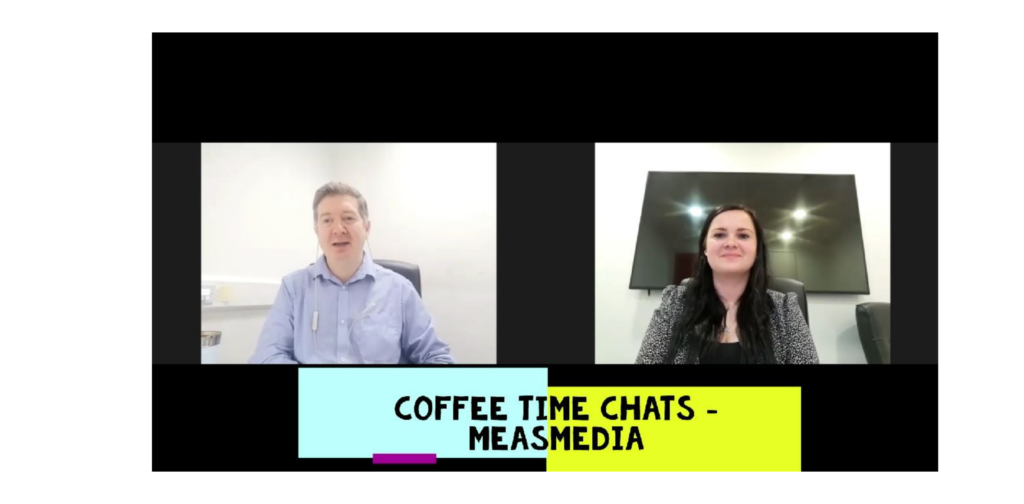
Today Ciara and Breandán discuss how to create better content (especially on Linkedin).
You can also download some more information on Linkedin marketing HERE.https://eu.jotform.com/build/210974916021049
Simon Gosling offers a 30-year portfolio career with extensive experience leading corporate transformation and generating growth and global expansion for both household-name companies and start-ups in advertising and adtech. Conceptualises organisational vision, and brings further expertise in directing operational activity and overseeing business development and marketing strategy. Personal oversight and leadership of the Unruly’s ‘Future Home’ project was recognised with the award of Campaign Tech Awards’ New Tech Pioneer of the Year 2018, and very much enjoys TEDx speaking engagements. Simon currently works with Quiet Mark as their CMO and hosts The Quiet Mark Podcast.
Q1. Did you always want to become a consultant or did you fall into the role?
It felt like a natural progression.
After 30 years in the Advertising and Marketing field, helping to build companies and create award winning content for world leading brands, I started receiving a tonne of calls asking for advice based on my experience and introductions based on my network. I’ve worked long and had to build those up and decided rather than always give that info away, it was time to start charging for it, which was when I set up Great Intro.
Q2. What makes a good consultant?
To answer that question, I would refer to this excellent diagram, that I share with many of the people that I mentor. The same applies to being a good consultant, an equal blend of Knowledge, Experience, Confidence and Enthusiasm.
Q3. Do you feel you manage yourself well or is it a case of ‘the cobbler’s shoes’?
Very well and very disciplined. In the early part of my career I had to post-produce multiple music videos, commercials and other projects, all with different demands, deadlines and budgets, never going over time or above budget, so I has to find ways to manage my time efficiently and effectively. But it’s not just about working hard, it’s about working smart, so I use a variety of platforms to manage and execute my tasks well. I’ve also self-taught myself a lot of different softwares, from I-Movie for video editing, Audacity for audio editing, PowerPoint for deck creation and presentation, Drive for file sharing and organisation, Hubspot for CRM and several others. I think it’s important to master these tools. The better you are with them, the more your efficiency increases.
Q4. Are there enough hours in your day?
Never, but that’s where it’s important to say no to certain opportunities and not overwhelm yourself.
Q5. If you could magically stop your clients from making one mistake – what would that be?
To stop sharing social media posts that have no defined purpose or defined audience. Always ask yourself, why am I sharing this, who is it for, what response do I want it to generate?
Q6. What do you find is the best way to market yourself?
When we could travel and do events, I would say doing Keynotes at events provides many ways to raise your profile, as does writing of articles in the press. Currently I host a podcast which has introduced me to some incredible guests, helping develop my understanding of acoustics and bringing myself and the company that I do it for to a wider audience.
Q7. What do you do to unwind?
Cycle, dog walk, listen to nature, read, visit art galleries, dance, sing, drum, laugh, cook, eat and spend quality time with family and friends.
Q8. What advice would you give a starting consultant?
See my answer to question 2. If you’ve got the experience and the network and want more flexibility in your life, go for it!
Q9. What’s your guilty pleasure?
Cadbury’s
Q10. What’s your goal for next year?
To become an NED/ Advisory Board Member at a couple more interesting companies. I’m already working with a couple and really enjoy doing so.
Need to contact Simon? https://www.linkedin.com/in/simongosling/
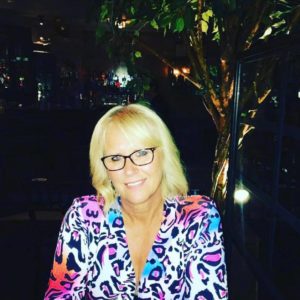
She’s the co-owner of Automation Made Simple and an Automation Consultant, and today we chat with Yvonne Hemmings, the ‘Automation Queen’. Yvonne works with service and product-based business owners online or offline to streamline and simplify their business with automation, saving time so they can work on increasing their earning potential. They transform businesses so they are guaranteed to save time and increase productivity. They also see immediate results in the amount of time saved which correlates with the amount of money saved too. Yvonne is passionate about automation and she knows her stuff – she knows what will work best for each business all while ensuring the personal touch is never lost.
Q1. Did you always want to become a consultant or did you fall into the role?
No I definitely fell into the role. I’d previously worked as a personal assistant before moving into operations and Health & Safety. It was in the operations role that I first got involved with automation on an industrial level and I worked with my now business partner on two large-scale automation projects which saved the business we worked for thousands of pounds. When we set up Automation Made Simple we looked to work to our strengths. My strength is consulting and marketing and my business partner works on the technical side of the business which we find works really well for us.
Q2. What makes a good consultant?
You definitely need to be a good listener. If you don’t listen to the needs of potential and current clients you are not going to be able to recommend the best service to them. You need excellent communication skills and the ability to gain trust with the people you are potentially going to work with is so important.
Q3. Do you feel you manage yourself well or is it a case of ‘the cobbler’s shoes’?
I manage myself very well. I’m also a qualified life coach so the skills I have gained from learning this skill, in particular listening and questioning skills enable me to find out exactly what a client is looking for so I can provide the best possible service for them.
Q4. Are there enough hours in your day?
There are definitely enough hours in the day. I think if I said there wasn’t we wouldn’t be very good automation consultants and integration specialists. If we find ourselves doing repetitive time-consuming tasks and they don’t need that all-important personal touch we automate the process so we save ourselves time.
Q5. If you could magically stop your clients from making one mistake – what would that be?
The biggest mistake business owners make is wanting to automate everything at once. We advise new and existing clients to start small with a process or task with will give a big win in terms of saving time straight away. By starting small we can then gradually increase the automation as we look at their processes which allows us to streamline and remove bottlenecks so our clients end up with a simplified automated system that not only saves them time but helps them to increase earning potential.
Q6. What do you find is the best way to market yourself?
We market ourselves through regular networking which leads to 1-2-1 meetings, posting, and engaging daily on Linkedin and past client referrals.
Q7. What do you do to unwind?
I love being outside so when restrictions allow you can often find me walking in the Peak District which feels like a second home to me.
Q8. What advice would you give a starting consultant?
Know your product or service well. You should become known as the expert for the service/product you are offering. I did this by posting and commenting daily on Linkedin, offering to carry out guest expert session in various Facebook groups so I could talk about advantages of automation and why every business owner needs automation in their life. Be confident and network regularly.
Q9. What’s your guilty pleasure?
I’m not sure I even have one but if I was pushed I would say binge-watching a series that’s grabbed my attention in one day or afternoon, just because I can.
Q10. What’s your goal for next year?
As a business our goal is to help more business owners to understand the benefits of automation, that’s it’s not too expensive, that they won’t lose the personal touch if it’s done right and that it’s for any size business from a one-man band to a corporation. And of course increase our turnover.